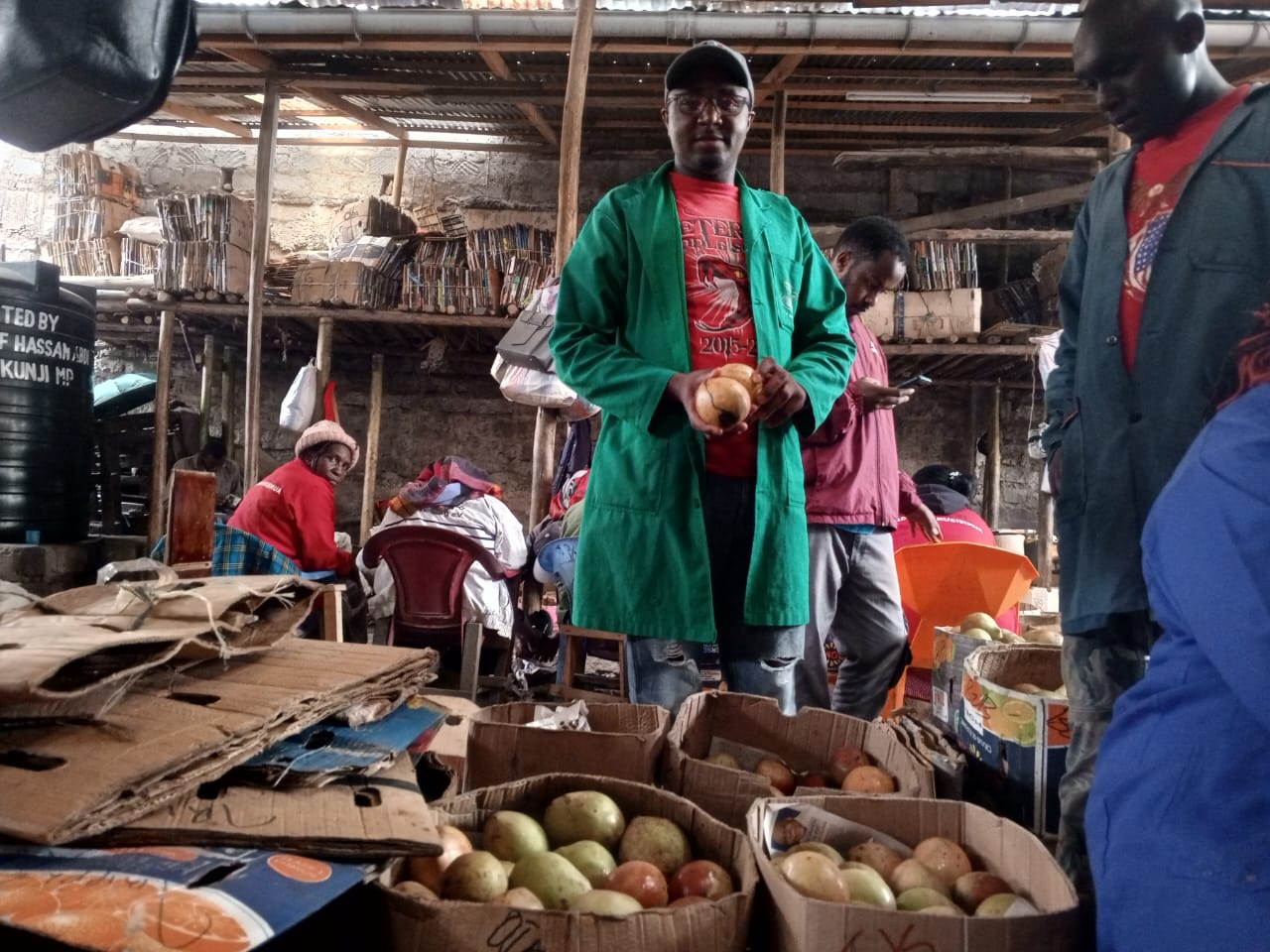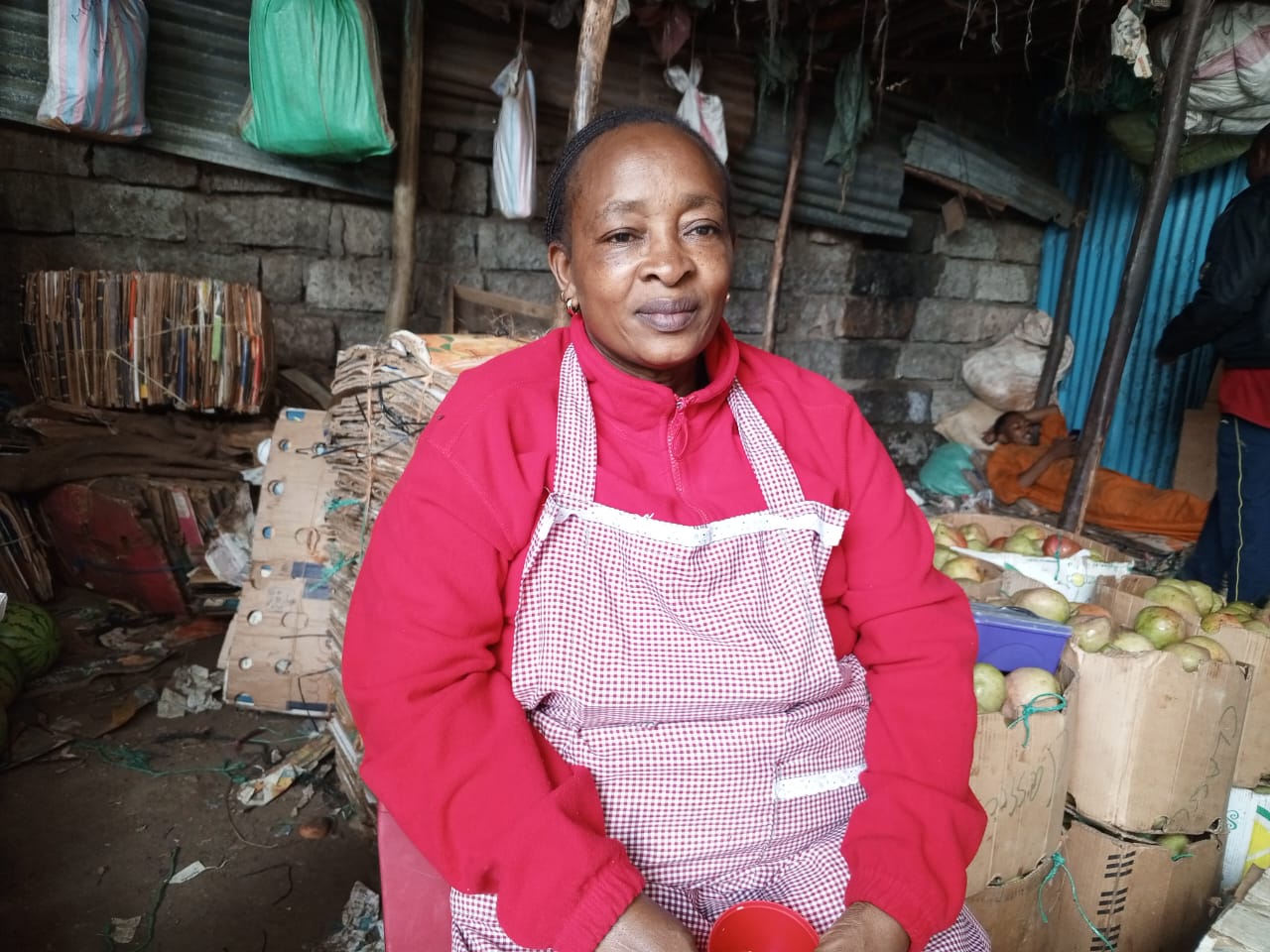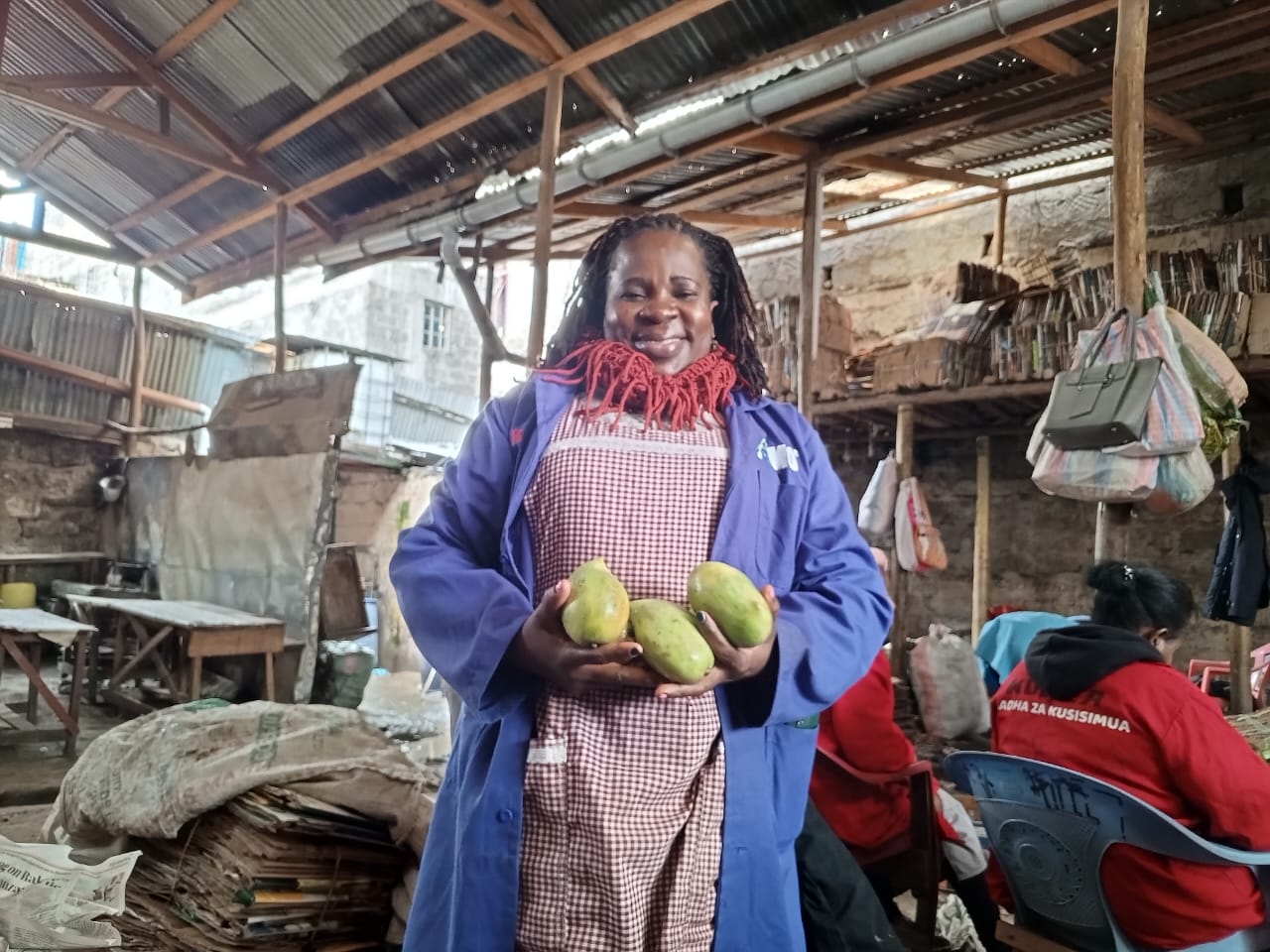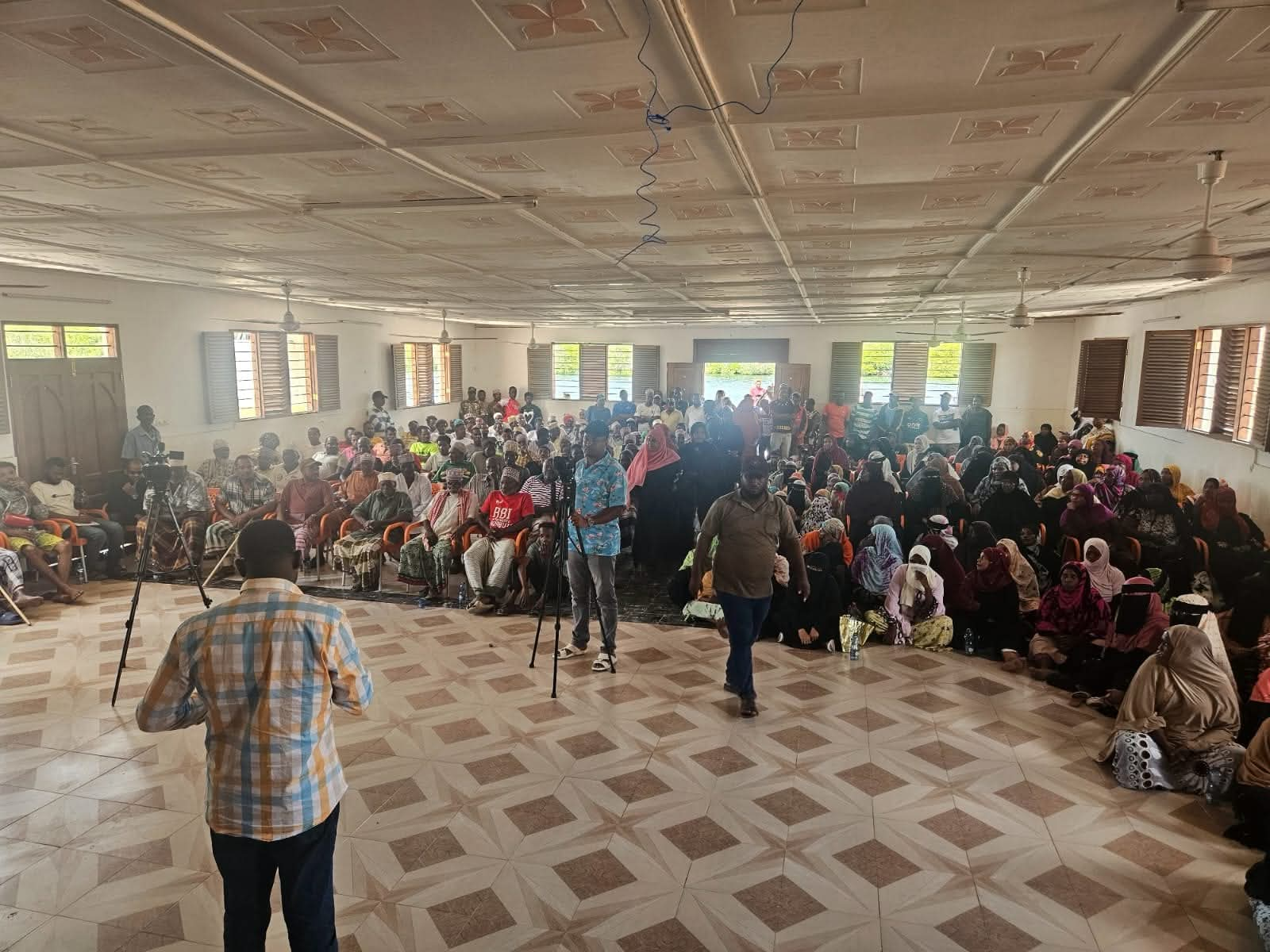Kwa maembe: Eastleigh's mango market that supplies fruit all year

While some may perceive it as just a small market, it has been a thriving entity since its inception around 2003.
While many people believe that mangoes are a seasonal delight, the Eastleigh Mango Market, known as Kwa Maembe among locals, defies this notion by providing an abundant supply of mangoes every day of the year.
Kwa Maembe offers a diverse range of mangoes, from the luscious Kent type to the zesty Apple mangoes, to suit every taste.
More To Read
- Eastleigh traders decry soaring taxes during meeting with KRA officials
- Eastleigh business leaders decry increased import duties during meeting with Trade PS
- Chilli farming transforms Kilifi economy as new processing plant boosts jobs and incomes
- Why Eastleigh is Nairobi’s economic powerhouse: Stories of hustle, culture and community
- Cold weather? Warm hearts with a mango smoothie
- Vibrant atmosphere as Eastleigh comes alive as Ramadan draws to a close
While many people believe that mangoes are only available during the summer, the Eastleigh Mango Market, fondly known as Kwa Maembe among locals, defies this notion by providing an abundant supply of mangoes every day of the year.
While some may perceive it as just a small market, Kwa Maembe has been a thriving entity since its inception around 2003. Initially, the original vendors operated from makeshift book lodges before securing a permanent location. Since then, it has become a cornerstone of Eastleigh's economy.
Kwa Maembe significantly influences the local economy, attracting traders from various communities to procure mangoes and other goods. At the market, buses are filled with enormous sacks of mangoes bound for places like Isiolo, Mandera, Wajir, Garissa, and Marsabit, all of whom rely on Eastleigh as their primary shopping destination.
While the mango market serves to fulfil the needs of its clientele, within its confines lies a story of prosperity that has profoundly altered the trajectories of countless vendors. Many who once arrived at the market as youthful individuals now stand as seasoned adults, with their grandchildren.
Leap of faith
Beatrice Muthoni, now 50, began her adventure in Eastleigh as a young woman just out of high school. Beatrice's foray into the world of mangoes began unexpectedly, alongside her aunt, who sold mangoes at Markiti Market. Beatrice discovered her entrepreneurial spirit amidst the market booths and fresh vegetables pandemonium. She started her own business after learning the ropes from her aunt.
“In 2011, I took a leap of faith and ventured into the mango trade. Armed with just Sh4,000 – a meagre sum by most standards – I purchased my first batch of mangoes and set out to make my mark on the market,” said Beatrice.
 Beatrice Muthoni. She sells mangoes at Kwa Maembe, Eastleigh, Nairobi. (Photo: Charity Kilei)
Beatrice Muthoni. She sells mangoes at Kwa Maembe, Eastleigh, Nairobi. (Photo: Charity Kilei)
The early days were filled with uncertainty and doubt, but Beatrice refused to be deterred. Through determination and hard work, she gradually built up her business, forging connections with suppliers from all corners of the country. Today, Beatrice is a familiar face at Kwa Maembe, her stall overflowing with the freshest mangoes in town.
“Through my business, I've been able to provide for my family, send my children to school, buy land and build, and support other aspiring entrepreneurs in their journeys,” Beatrice said.
Abala Khadija Salim, a 44-year-old entrepreneur has traded at the Kwa Maembe market for the last 19 years. Before finding her calling in the mango trade, Khadija tried her hand at various odd jobs, struggling to make ends meet. But it wasn't until she stumbled upon the mango market that she found her true passion.
“My journey into the mango trade began modestly, with just a box of fruit to my name. But through sheer grit and determination, I gradually expanded my business, sourcing mangoes from all corners of the country and supplying them to eager customers at Kwa Maembe,” said Khadija.
Khadija's success is about more than just turning a profit, it's about giving back to her community. Through her business, she has employed several young people in Eastleigh, offering them a chance to earn a living and support their families.
“There are many opportunities in the market, and we give young people the chance to assist us. We teach them how to trade, which brings me joy,” said Khadija.
Collaboration
Khadija said their strength lies in empowering each other and collaborating as a team to support everyone's growth.
“In our approach, we ensure that everyone, even small traders who can't afford to hire a pickup, has access to mangoes. We come together and collectively hire a pickup to procure fruits, which empowers everyone involved,” she said.
 Abala Khadija Salim. The 44-year-old entrepreneur has traded at the Kwa Maembe market for the last 19 years. (Photo: Charity Kilei)
Abala Khadija Salim. The 44-year-old entrepreneur has traded at the Kwa Maembe market for the last 19 years. (Photo: Charity Kilei)
While the Kwa Maembe market has its share of senior people, some young men flout the traditions and compete. Samuel Ndung'u, 29, first planned to export mangoes to other nations after arriving in Eastleigh and joining Kwa Maembe in 2020, after the Covid-19 pandemic had reached its apex. However, with time, he established himself in the local market.
Despite the challenges, Ndung'u persevered, finally carving himself a niche in the local market.
“Initially, business was slow, but after mastering the trade, I can procure my goods, cultivate a loyal clientele, and find fulfilment in our accomplishments. The reason we thrive is that we prioritise quality and freshness. We refuse to compromise on standards, ensuring there's something for everyone," said Ndung’u.
Ndung'u's principal message is to make people aware that mangoes are not just seasonal fruits; they are available all year. Despite its prosperity, Kwa Maembe market traders have their challenges. Wastage remains an ongoing issue, as vendors try to find ways to dispose of unsold fruit. Vendors compete fiercely for customers' attention in an increasingly saturated marketplace.
To ensure a consistent supply, Kwa Maembe vendors seek fruits from all over Kenya, spanning from the Northern Coast to the Southern Coast, Central, Baringo, Machakos, or any other place, they travel far and wide to procure mangoes, ensuring a steady flow of supply to the market.
The chairperson of Eastleigh Mango Market, Maina K., said the place boasts around 200 vendors during the mango seasons. However, during the off-season, the number of vendors decreases to about 30, with approximately 60 youth also employed at the market.
“We aim to provide equal opportunities for everyone in the market,” said Maina.
Top Stories Today












































